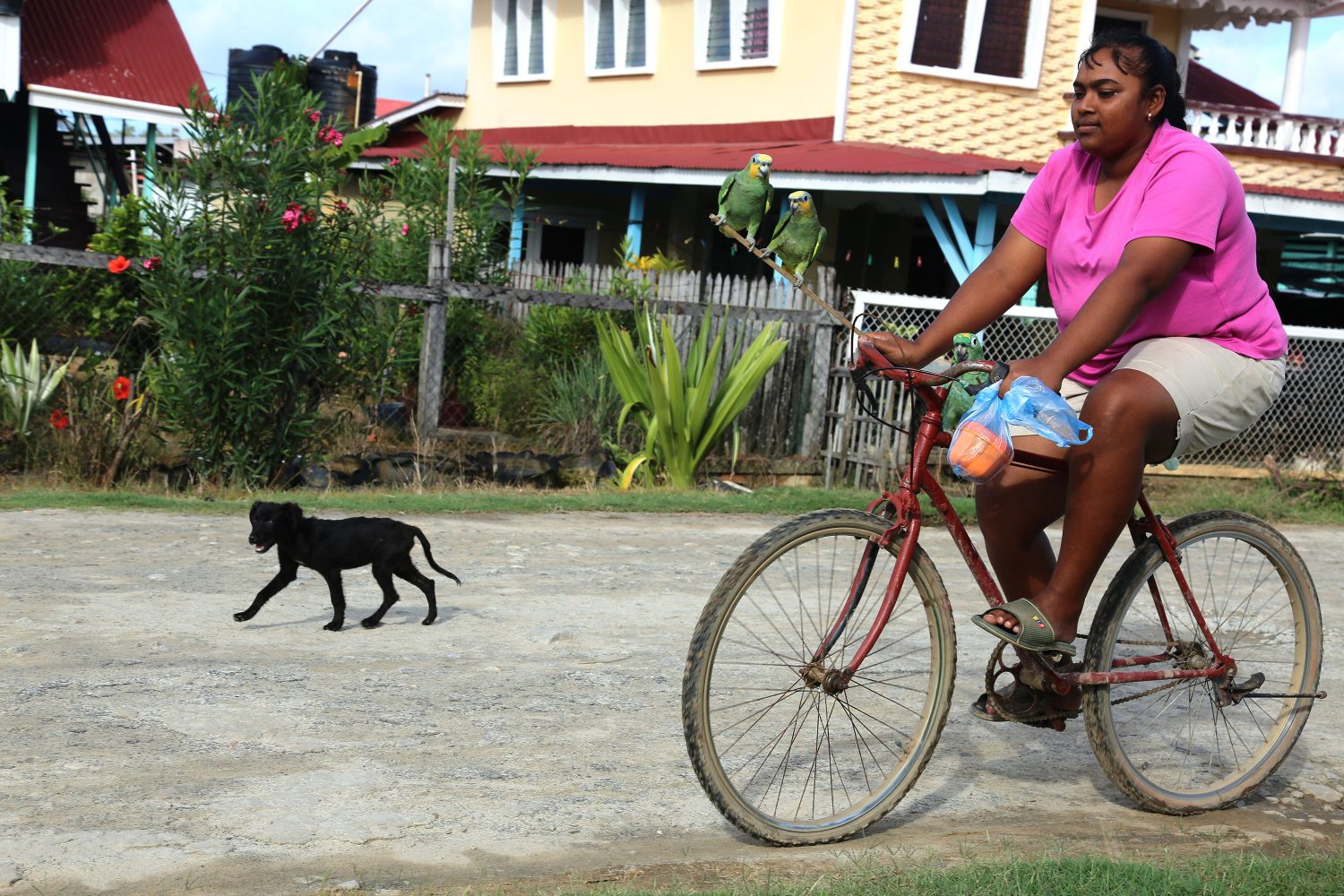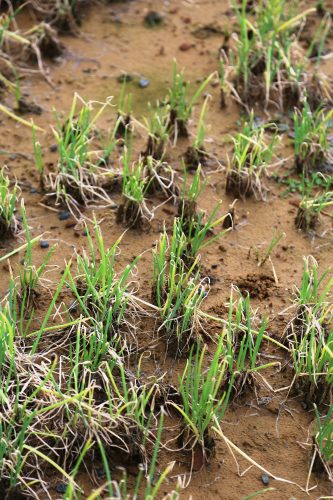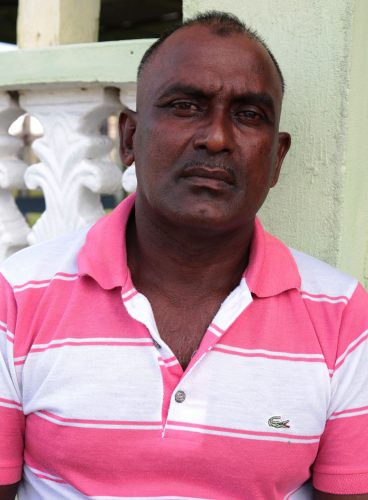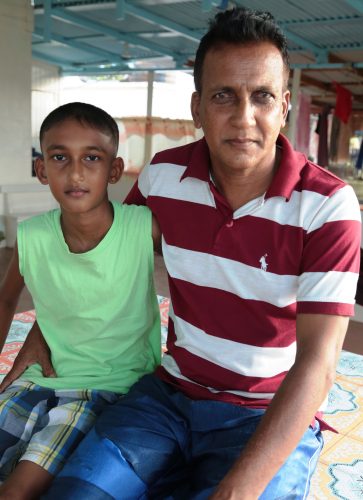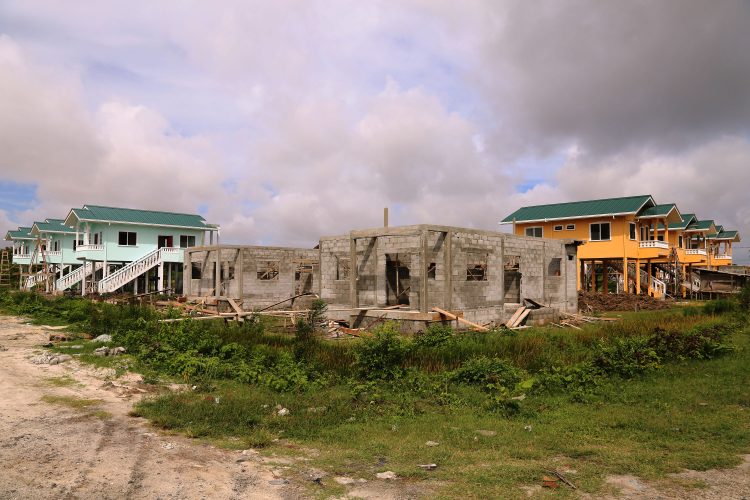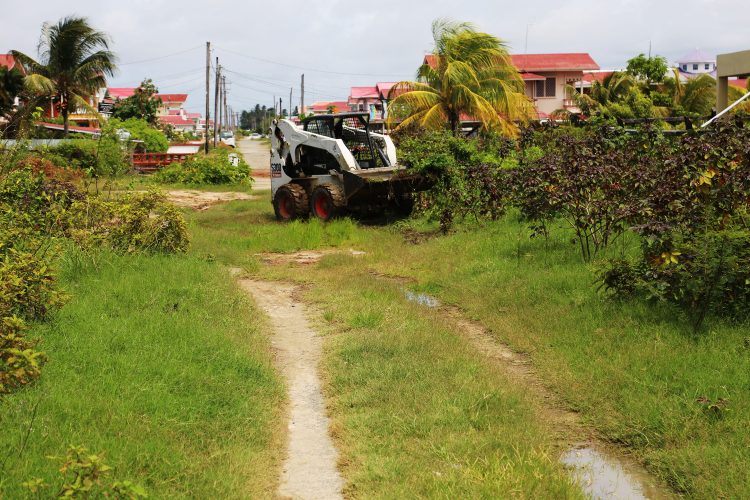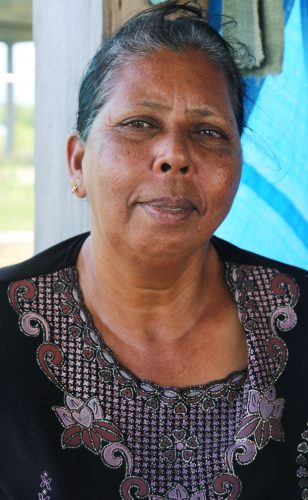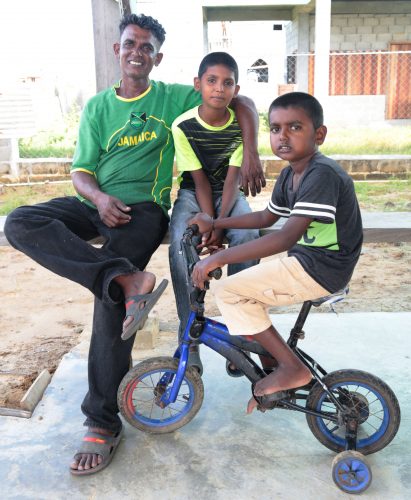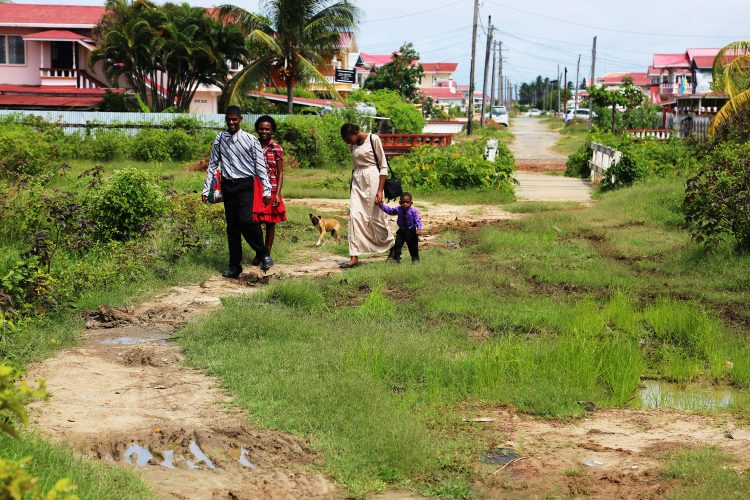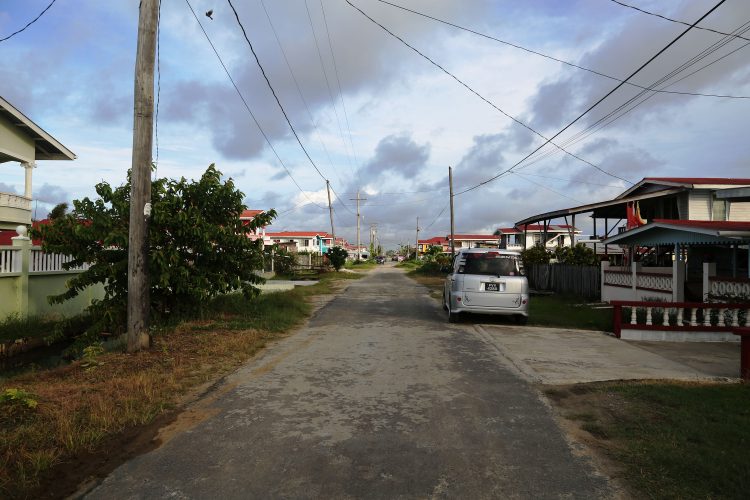Approximately 56 miles from the capital city, the village of Experiment on the West Coast Berbice sits between Naarstigheid and Hope (Bath Settlement). Experiment is sometimes referred to as New Bath, since it came into existence just 23 years ago after the older nearby villages, Hope, Waterloo and Waterloo Jib, which are all referred to as Bath Settlement.
Experiment has some 300 residents and the village has all of the necessary amenities including a health centre. There are two churches, one on the western side of the village and another on the eastern side, which is a newer phase with houses just recently built. Although most of the residents are either Muslims or Hindus, the village has no mosque or temple. Many of them travel to nearby villages to attend their respective places of worship.
Sahodra Adams was born in Bath Settlement and moved to Experiment in 1997. She bought her plot of transported land for $70,000 total, after returning from Suriname where she had lived since 1980. Her children, who had been born in Suriname, stayed and attended school for nine years, then they all returned to Suriname. Adams only returned to Experiment four years ago.
The woman, who is a shopkeeper, said she opened the shop on her return after having a conversation with a doctor from the health centre who had said that his patients would often leave and go in search of shops. Adams lives a stone’s throw away from the health centre.
While we talked, she continued to tend to customers, mostly members from the nearby church purchasing snacks. Sundays, she said, are her busiest days; church members are her best customers. Sometimes she manages to sneak away during the week to visit her children in Suriname, but she is always back in her shop by Sunday.
Adams is a diabetic and she complained that often when she visits the hospitals in Guyana they are out of insulin and she would have her daughter send from Suriname.
Some time ago her shop was broken into and she lost a number of items.
She said that although Experiment is a nice village to live in, the two aforementioned problems might see her returning to live in Suriname soon, as well as the idea of being closer to her children.
She lamented the weed-filled drain in front of her house, adding it could not be compared to the living standards in the Dutch country. She said she pays $2,000 a year for the drains to be kept clean, yet they are left in such a state. She then turned her attention to the chaos on the road, commenting that her elderly friend would often lose her balance and fall.
“The road not too perfect and this rainy season just make it worse. They really need to do something about this road,” Adams said.
Kowsilla Brijlall lives on the eastern side of the village, where the houses are relatively new. She and her family moved in during the month of March. They originally lived in Bath Settlement.
Because not many houses have been built as yet, Brijlall finds it breezy. The downside is that the land is low and thus floods often. The woman said it would be nice to have a few neighbours.
Her daughter and her family live with her and her two grandsons attend Hope Nursery and Bath Settlement Primary. The latter has to ride three villages away for school. To stay safe, he keeps off the busy Berbice road and would instead ride through the streets in the villages.
Her section of the village has no shops and so the woman would sometimes send for little items at the shops in Hope. She purchases goods on the weekends at the Rosignol Market.
“It feels good to live here,” Brijlall said, “knowing that the house you’re living in is your own and you’re not renting.”
She would like better streets.
Two beds of yellowing shallots (green onions) between the fence and the drains marked the property of Bharrat Lalgie, who moved to Experiment 17 years ago from Shieldstown.
On arriving, the first thing he did was clear the bush and soon began filling the land. He said he paid $56,000 for his plot of transported land.
Lalgie is a labourer at Blairmont Estate where he has worked since 1988. Many other Experiment residents work at the estate. A few other persons work taxis on the road or have their own businesses.
Estate work is hard, the man declared. He insisted on displaying his pay slip, showing his weekly income as $10,398 for the four days he worked, which after a tax deduction of $2,013 left him with take-home pay of $7,585.
He added that because of his small wages, he began planting “shallot” but the rain had damaged most of them. He has since taken both his teenage children out of school and indicated that many other persons have done the same for the same reasons. Pointing to his pay slip, he said, “Not me alone does work for this money. My wife does work for it too. If she don’t get up at three in the morning to cook and put something in me bowl, I can’t go to work.”
Despite these hardships, he said living in Experiment among cooperative people made life better. He said villagers had been begging the workers constructing houses at the back of the scheme to assist in trying to fix one particular section of the road; this was underway at the time I visited.
Taking into consideration the number of young boys at home not attending school, Lalgie said a community centre ground would be appreciative.
Bickram Persad was fixing his bicycle. The tika on his forehead indicated that he had been at his mandir earlier that day and he admitted to being an ardent member of the mandir in Bath Settlement, where he had lived until 21 years ago. He claimed to be the fourth person with a family to have moved here
“Living here is alright. I don’t have complaints about here. You don’t find troublesome people in the area and the good thing is, we can plant a kitchen garden here to get by. However, because of the rain, all my celery that I planted damage. I can’t plant anymore until the rain stop,” Persad said.
Apart from his damaged celery he is concerned about talk of GuySuco closing its pay office, which means workers will need to get their wages through the bank. Currently, workers can choose whether to collect their money from the bank or the pay office. He is against the closing of the pay office explaining that if this happens, vendors selling just outside, from whom workers collecting their pay would buy their goods before heading home on Fridays, will be affected as well.
Persad, a taxi driver, said it will affect him and other taxi drivers as well. At present, persons with heavy goods, as well as vendors, call on them to take them to and from home. Persad added that all of this should be taken into consideration because the existing pay office creates job opportunities.
“Other than this I’m okay. All we need here is for them to fix the roads, otherwise I have no complaints. We have all the necessary comforts here,” he said.
